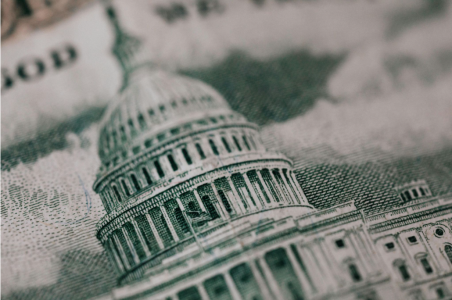Millions to see increases: How Social Security benefits are changing in 2025
By
Aubrey Razon
- Replies 0
Big changes are on the horizon for millions of Americans relying on Social Security. A new act could reshape benefits for public sector workers nationwide.
Stay tuned to see how this could impact you or someone you know!
The Social Security Fairness Act has made its way through the legislative process with remarkable bipartisan backing, reflecting the widespread recognition of the need for reform.
The Senate's approval, with a strong majority of 76 Senators from both parties, signals a rare moment of unity in a typically divided Congress.
Despite the absence of an official confirmation, supporters are optimistic about the bill's future, with President Biden expected to sign it into law.

The implications of this legislation are profound.
For decades, the Windfall Elimination Provision (WEP) and the Government Pension Offset (GPO) have been points of contention, reducing Social Security benefits for those who also receive pensions from non-covered employment.
This has disproportionately affected public sector workers, many of whom have dedicated their lives to serving their communities, only to find their retirement benefits unfairly diminished.
The Social Security Fairness Act aims to rectify this by repealing both the WEP and the GPO, thereby restoring full benefits to those who have been penalized by these policies.
This change not only acknowledges the value of public service but also ensures that retirement benefits reflect the contributions made throughout a worker's career.
The WEP has historically reduced benefits for workers with less than 30 years of significant earnings in jobs covered by Social Security if they also receive a pension from non-covered employment.
Similarly, the GPO has reduced spousal or survivor benefits for individuals receiving pensions based on non-covered employment.
The repeal of these provisions means that public sector employees will no longer see their Social Security benefits reduced or eliminated due to their participation in alternative pension systems.
The passage of the Social Security Fairness Act is more than just a legislative victory; it's a personal triumph for the millions of public sector workers who have felt the sting of reduced benefits.
The new law, if signed, will apply retroactively to all Social Security benefits paid after December 2023, offering a financial boost to those who have been affected by the WEP and GPO.
The bill has received praise from various quarters, with outgoing Senate Majority Leader Chuck Schumer calling it a correction of a “50-year mistake.”
Ohio Senator Sherrod Brown, a co-sponsor of the bill, emphasized that Social Security is a cornerstone of the middle class, and workers are simply asking for what they've earned.
Shannon Benton, executive director of the Senior Citizens League, hailed the bill's passage as a monumental victory for public service workers.
With the inauguration of President-elect Donald Trump on the horizon, President Biden has a narrow window to sign the legislation into law.
While there has been no public announcement, there is a strong indication that the signing will take place, marking a significant step forward in ensuring fairness for America's public servants.
 How do you feel about potential changes to Social Security benefits? Share your insights with us in the comments below.
How do you feel about potential changes to Social Security benefits? Share your insights with us in the comments below.
Stay tuned to see how this could impact you or someone you know!
The Social Security Fairness Act has made its way through the legislative process with remarkable bipartisan backing, reflecting the widespread recognition of the need for reform.
The Senate's approval, with a strong majority of 76 Senators from both parties, signals a rare moment of unity in a typically divided Congress.
Despite the absence of an official confirmation, supporters are optimistic about the bill's future, with President Biden expected to sign it into law.

The Social Security Fairness Act could benefit millions, including public sector workers, if signed into law by President Biden. Image source: Kaboompics.com/Pexels.
The implications of this legislation are profound.
For decades, the Windfall Elimination Provision (WEP) and the Government Pension Offset (GPO) have been points of contention, reducing Social Security benefits for those who also receive pensions from non-covered employment.
This has disproportionately affected public sector workers, many of whom have dedicated their lives to serving their communities, only to find their retirement benefits unfairly diminished.
The Social Security Fairness Act aims to rectify this by repealing both the WEP and the GPO, thereby restoring full benefits to those who have been penalized by these policies.
This change not only acknowledges the value of public service but also ensures that retirement benefits reflect the contributions made throughout a worker's career.
The WEP has historically reduced benefits for workers with less than 30 years of significant earnings in jobs covered by Social Security if they also receive a pension from non-covered employment.
Similarly, the GPO has reduced spousal or survivor benefits for individuals receiving pensions based on non-covered employment.
The repeal of these provisions means that public sector employees will no longer see their Social Security benefits reduced or eliminated due to their participation in alternative pension systems.
The passage of the Social Security Fairness Act is more than just a legislative victory; it's a personal triumph for the millions of public sector workers who have felt the sting of reduced benefits.
The new law, if signed, will apply retroactively to all Social Security benefits paid after December 2023, offering a financial boost to those who have been affected by the WEP and GPO.
The bill has received praise from various quarters, with outgoing Senate Majority Leader Chuck Schumer calling it a correction of a “50-year mistake.”
Ohio Senator Sherrod Brown, a co-sponsor of the bill, emphasized that Social Security is a cornerstone of the middle class, and workers are simply asking for what they've earned.
Shannon Benton, executive director of the Senior Citizens League, hailed the bill's passage as a monumental victory for public service workers.
With the inauguration of President-elect Donald Trump on the horizon, President Biden has a narrow window to sign the legislation into law.
While there has been no public announcement, there is a strong indication that the signing will take place, marking a significant step forward in ensuring fairness for America's public servants.
Key Takeaways
- Millions of Americans, including public sector workers like police officers, firefighters, and teachers, stand to benefit if President Joe Biden signs the Social Security Fairness Act into law.
- The Social Security Fairness Act aims to repeal the windfall elimination provision (WEP) and the government pension offset (GPO), which reduce social security benefits for employees who receive pensions from non-social security-covered employment.
- The Act has received bipartisan support in Congress and could correct what supporters claim is a historical wrong affecting public sector workers.
- If enacted, the law would apply retroactively to all Social Security benefits paid after December 2023, benefiting those currently affected by reduced or unavailable social security benefits due to the WEP or GPO.






